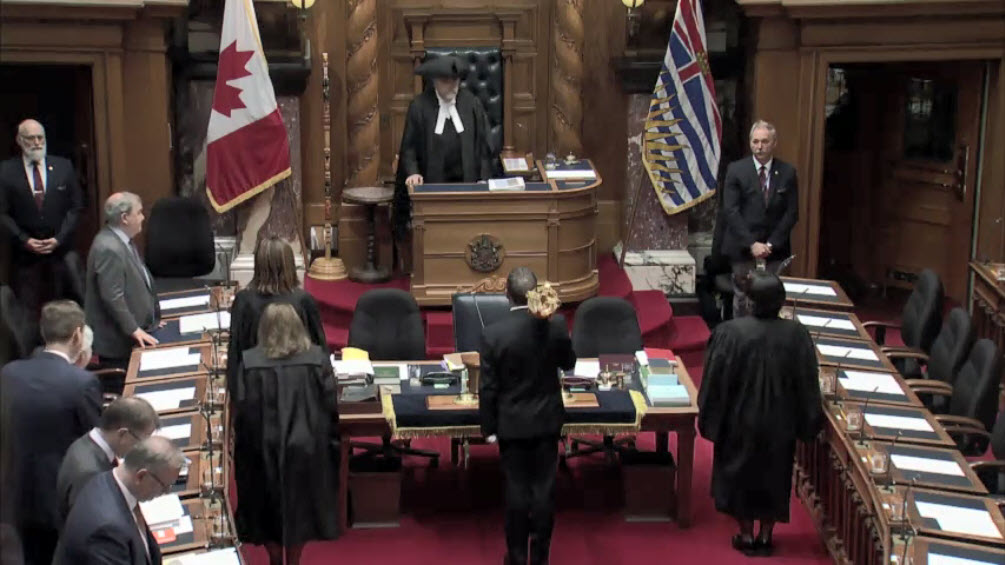Balancing the right of the majority to conduct business with the right of the minority to be heard is one of the Speaker's most difficult tasks.
The primary role of the opposition is to question government actions and present alternatives to government positions. While this kind of adversarial system is a cornerstone of democracy, debates can, like a hockey game, sometimes get heated. The Speaker serves as a very necessary referee, ensuring fair play by all MLAs.
It is the Speaker's job to enforce the Standing Orders - the Assembly's rules of parliamentary procedure that are designed to make sure that debates in the Assembly are properly carried out and that all MLAs have the opportunity to participate. These rules require all MLAs to show respect for the Speaker and for each other. For example, Members must not speak unless "recognized" (allowed to speak) by the Speaker and must not interrupt when the Speaker is speaking.
In addition, to discourage personal attacks, MLAs must address the Assembly through the Speaker at all times, rather than addressing each other directly. When referring to one another, they must use the name of an MLA's constituency (for example, "the Member for Victoria-Beacon Hill") rather than the MLA's actual name. This helps maintain order in the Assembly. In a spirited debate, the Speaker can act as a buffer between Members, and heated words may be less inflammatory when directed through the Speaker. The Legislative Assembly is a forum for robust debate, not merely a polite debating society.
If an MLA does not obey the rules and makes inappropriate or discourteous remarks, the Speaker will ask the Member to withdraw those remarks. If the Member does not comply with the Speaker's instructions, the Speaker has the power to order the MLA to withdraw from the Legislative Chamber for the day. For more serious offences, the Speaker "names" the MLA, which means the MLA may be suspended from the Assembly without pay for anywhere from one to 15 days.
If the MLA refuses to leave the Chamber as requested, the Speaker may ask the Sergeant-at-Arms to remove the Member. In such a case, the offending Member may be suspended for the balance of the session.
It's uncertain what the origins of the Speaker's Procession are, but two theories originating from early parliamentary practice in Britain may shed some light on this ceremony. One theory is that processions are based on the entrance of early Speakers and their bodyguard - the Sergeant-at-Arms - into the Chamber. The other theory is that processions depict the clergy entering the Chamber to say prayers at the start of each sitting. Either way, the Speaker's Procession in B.C. is a long standing tradition that signifies the important role of the Speaker as a presiding officer of the Legislative Assembly.

